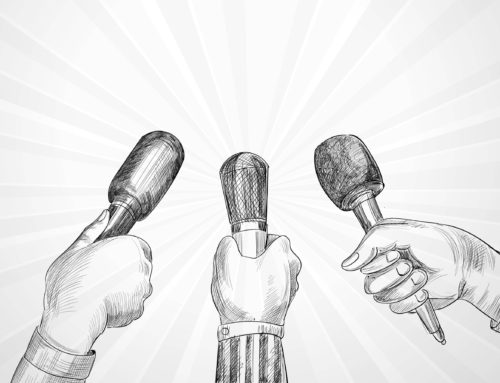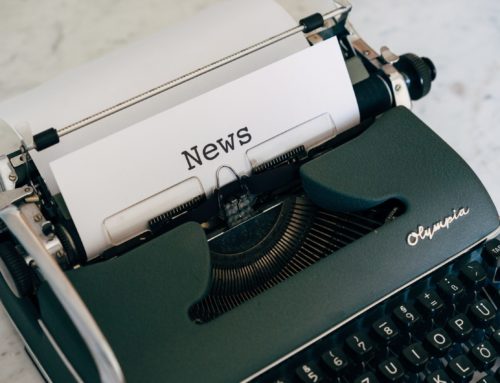
A new developmental disability podcast focused on New York State and beyond, “Finding Common Ground,” has an unusual goal for a medium centered on a microphone: Make less noise. Or, at least, less static.
“Berating politicians that don’t want to hear what we have to say doesn’t work,” says Steve Gonyea, co-creator of the podcast with Heather Burroughs. “Hopefully, we can empower people to find a different way of advocating. We’re looking for solutions.”
Gonyea and Burroughs, both of whom have children with developmental disabilities (DD), are longtime committed advocates in New York State and beyond. They’ve been deep into the muck themselves, both in terms of navigating the broken DD system of care and services, and in working to change it.
The podcast, two of which have been posted — three including an introduction to the project — features guests discussing a wide range of issues affecting the DD community, including the laws that govern it. First guest up was New York State Assemblymember Marianne Buttenschon who, among other things, shares how to get positive attention from hard-to-focus state leaders. Sneak-peek tip: Make sure you have the facts ready to support an ask.
The second podcast features 73-year-old Teena Fitzroy, a woman with cerebral palsy who would not let the system hold her back. As a child, for starters, she rebelled her way out of institutional care. Now she advocates for choice, inclusion and more.
The Boost spoke with Burroughs and Gonyea about “Finding Common Ground”’s mission, their not having an agenda and why it’s good to be fearless.
This article has been trimmed and edited for clarity. Brief bios are at the end of the Q&A.
The Boost: How did the podcast come together?
Heather Burroughs: Steve and I live in different parts of the state [Burroughs in Rochester, Gonyea in Utica], but we met through NYADD [the New York Alliance for Developmental Disabilities, an advocacy organization].
We started to talk about how so many people we hear from in Facebook groups and other places feel so discouraged. They bash [the system] and complain about how it’s broken. And we discussed how in a way we’re all just talking to people who agree with each other. But if you don’t sit down with the people who oppose you or demean you and see why they feel a certain way, you can’t change the situation.

What’s ‘Finding Common Ground’’s mission?
Steve Gonyea: I go to Albany a lot. About a year-and-a-half ago, I realized it was always the same old same old and things weren’t getting done. We want to shine a light on the issues and talk about the solutions, in some cases those that are already being worked on behind the scenes.
HB: We don’t have an agenda. It’s a discussion of what didn’t work, what might work the next time. Some people don’t know what they don’t know and think they’re doing the right thing. They hear [new information] and then see things a bit differently.
We also want to give people a blueprint: “You feel like you’re banging your head against the wall? Try these three steps.”
So, what are other ways to get the attention of people with power?
HB: How about asking politicians to try a pilot program instead of asking them to say “yes” to an entire project. With elections coming up they want to be champions so leverage that. Tell them if they try it, they’ll look like a hero.
Identifying a problem doesn’t get you anywhere. They know the problem, so you have to help with solutions
What guests do you have coming up?
HB: We were really inspired by our talk with Otto Lana and Marilee Bugeson, which will be released soon. [“Otto’s Voice: A Journey Beyond Words.”] Otto, an exceptional advocate, poet and entrepreneur, is a non-speaker who recently graduated high school and will be the first “multi-modal communicator” on the University of San Diego’s campus.
Marilee is a developmental speech therapist from California specializing in the Developmental, Individual-Differences and Relationship (DIR) model. They discuss how trust, respect and a presumption of competence can unlock communications pathways that were once though inaccessible.
We also have upcoming episodes recorded on CDPAP, trauma in the DD population and a look at the DSP crisis.
Any others brewing in your minds?
HB: It would be good to have a family who did something special, created a law or a community center, and to talk to them about the hurdles they hit.
SG: Yes — family voices are not being heard.
HB: We’d also love to talk to guests who are on opposing sides of an issue, have them on together and [facilitate] a dialog.
Traditional advocacy isn’t working the way it used to. We can show people how we approach it differently, how it works and how it empowers you.
Anything else you’d like to mention? The floor is yours!
HB: We have to thank Scott Fitzgerald. He’s the owner of the Roc Vox Recording Studios, has a child with autism and has supported this endeavor on so many levels, from renting us studio space to helping us edit/upload, etc. He’s a man of many talents.
Brief Bios
Heather Burroughs is the Advocacy and Education Director at AutismUp and a Rochester native who discovered her passion for advocacy through supporting her sister with autism. Now a mother of four children with varying disabilities, she has years of experience navigating the developmental disability system and has supported families in education, healthcare and housing.
Steve Gonyea is the father of seven children, including an adult son with autism and a processing disorder and another with other developmental disabilities. A longtime foster parent who ostensibly is retired he is, among many other things, NYS vice chair of the National Council on Severe Autism and an ombudsman at the NYS Dept. of. Health Office of the Aging.Image: The “Finding Common Ground”
Image: Created by Elli Pereira-Burroughs, Heather Burroughs’ 19-year-old daughter.
Editor’s Note: The Boost co-wrote a published Op-Ed with Heather Burroughs earlier this summer.



